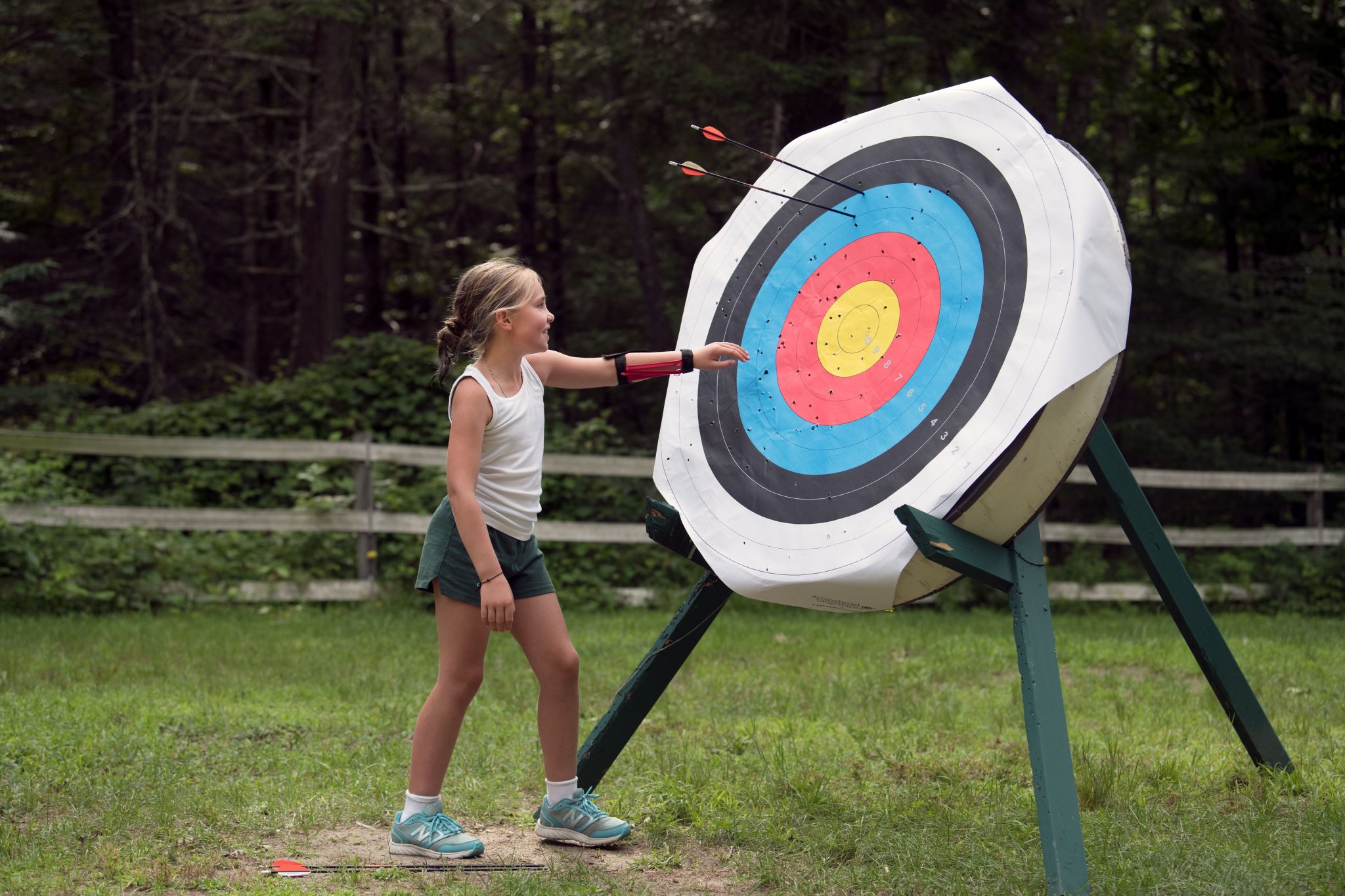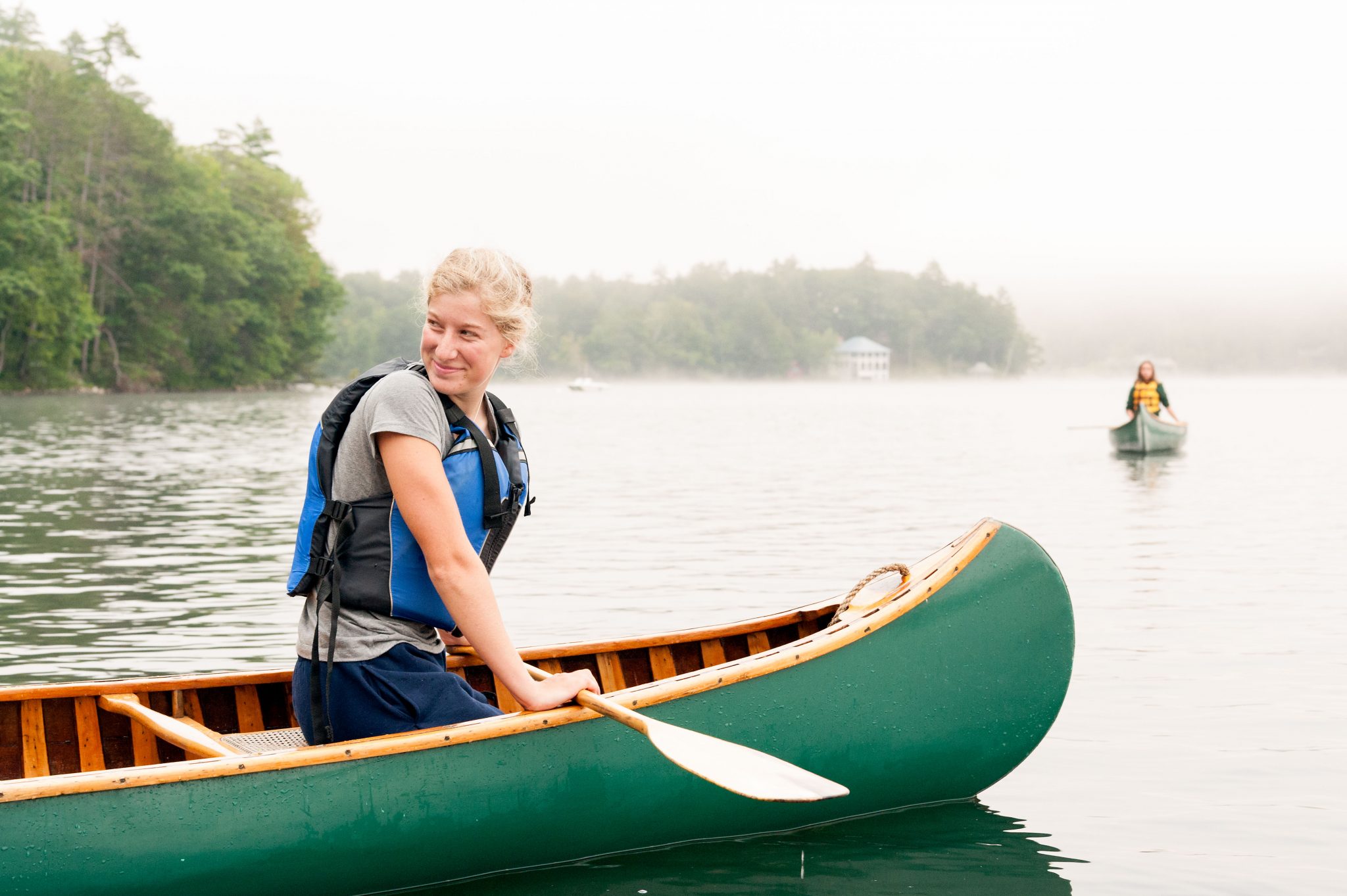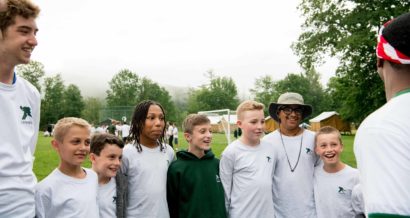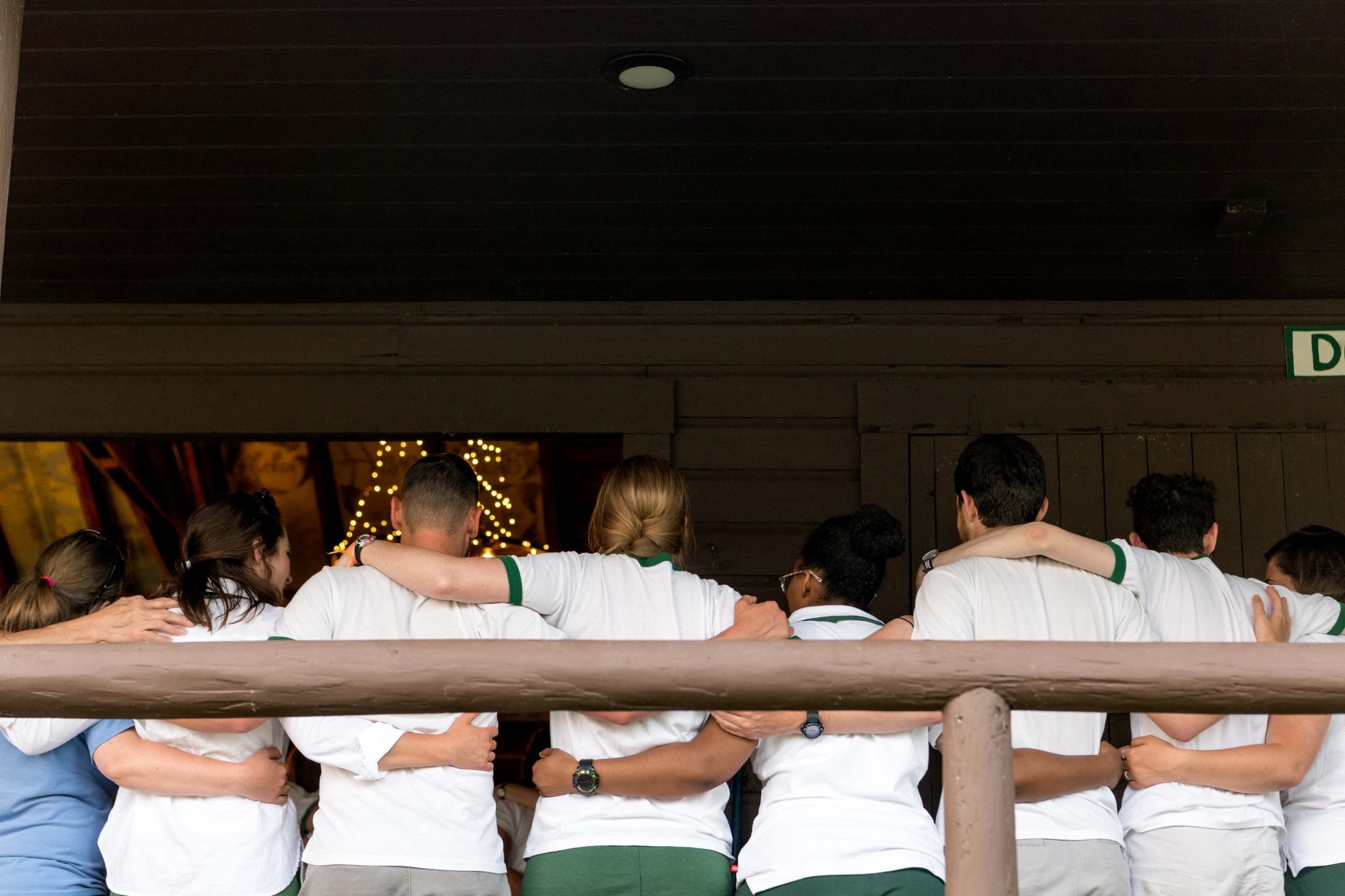 Article
Article

In this blog series, we focus on the value of camp. Here, we’ve reflected on the optional ranks systems at our three residential camps and the choice campers have to make their summer what they want: more of a freeform experience of exploring different activities, a focus on ranks and skill mastery, a mix of the two, or something else entirely!
Why Camp: Fun & Games – Skill Progression at Camp
Choice is at the heart of our resident camp experience. From basketball to basket weaving—and everything in between—we offer a wide range of activities that focus on both skill and fun. We encourage campers to seek new experiences that feel right for them, and we make learning enjoyable. One way kids can challenge themselves is by working through progressively harder tasks in each department called “ranks” at Hive and Aloha and “Viking Honors” at Lanakila.
STRUCTURE AND PURPOSE
How do ranks and Viking Honors work?
First of all, ranks and Viking Honors are completely optional. Some children love camp because it’s nothing like school – no grades, no class schedules, no tests and exams…whew! Other children really like having structures in place to help them think about the day—or summer—ahead. We believe it’s important to create a summer community where every kind of learner can thrive.
Many children in our resident camps choose to pursue ranks each summer. Ranks progress in difficulty from basic skills through increased proficiency. The natural progression of skills in each department makes it easy for campers to set and reach tangible goals, and to see their own progress. Once a camper has mastered certain skills, they are said to have passed a particular rank or achieved a particular honor.
VALUE FOR THE CAMPER
A wide range of skills
The ranks we teach incorporate both technical skills, like tying a slip knot or notching an arrow to a bow, and interpersonal skills, such as working with peers to solve problems or bring a project to fruition. Many of these can be taken to other settings easily. There are obvious examples, like how using a jackknife to help prepare a meal over a fire can lead to helping with dinner prep at home. Or how playing tennis or basketball regularly all summer can lead to improved performance on school and community teams.
There are other less obvious applications to life outside of camp, however. Learning how to build a fire that will light with one match, or to steer in a straight line from the stern of a canoe, can help kids improve their planning and organization at home, as well as their focus and patience in school. As an added bonus, the increased self-confidence that often comes with a rank is a great boost for children as they head into a new grade or school at the close of the summer.
The individual journey
We celebrate the passing of ranks publicly with cheers and high fives, letting kids know they are important. But one thing that is unique about the pursuit of ranks and Viking Honors is that this journey is a non-competitive one for campers. In contrast, children are often compared to one another in environments outside of camp: in sports, at school, and even within families. They start to judge their performance against that of their peers or siblings instead of thinking about their own individual effort or merit.
At camp, we frame ranks and Viking Honors as an individual journey, and we say that a camper’s achievement is a “victory over oneself.” This concept helps children to develop internal motivation, which is so important. Additionally, campers learn to celebrate the accomplishments of others without experiencing a sense of comparison or diminished worth—another invaluable skill to be learned and practiced.
VALUE FOR THE COMMUNITY
Connection and belonging
Thinking about camp activities in this way allows us to structure our curriculum over the course of weeks in a summer, and summers over time. More importantly, the work kids do during the summer becomes part of the greater fabric of camp. Not only are ranks meaningful to the campers who complete them, but they symbolize something greater within the summer experience as a whole.
Many campers end up completing some elements of their ranks with other people, either because the task required is a group event (being in a swim meet or pitching a tent) or because several kids are working on individual tasks at the same time. Connections like these bring campers together from different tent families, units, and ages, and frequently lead to friendships that flourish outside of the activity department. Working on skills this way also provides campers with many counselor role models over the course of the summer.
AND LET’S NOT FORGET…
It’s not all about camp
Maybe the icing on the proverbial cake (or the marshmallow in the s’more?) is that ranks and Viking Honors have existed in our resident camps for decades, so working on them provides campers with a tie to our camps’ past and traditions. Feeling connected to something greater gives kids a sense of value and importance that they can carry into all aspects of their lives – at least, that’s what we hear year after year from the campers who’ve chosen to pursue ranks at camp.
Camp is fun no matter what kids are doing—that’s why we do what we do! Giving campers the opportunity to choose whether or not they want to work on ranks is a way to give them agency and purpose…if that’s what they’re looking for over the summer. The fact that ranks are optional gives structure to those who want it, and lets the community celebrate the many varied accomplishments of its members. Ranks aren’t a key aspect of every camper’s summer, but they are a great way to learn life skills that can be brought back to home, school, and future camp summers.

